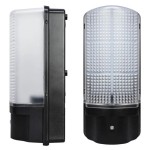Essential Aspects of Painting Wooden Outdoor Furniture
Maintaining the aesthetics and durability of wooden outdoor furniture is crucial. Painting is an effective way to protect and enhance its appearance, but it involves several essential aspects that need careful consideration.
To achieve the best results, it's important to understand the process and factors involved, including surface preparation, paint selection, application techniques, and maintenance. This article will delve into these essential aspects to guide you through the successful painting of your wooden outdoor furniture.
Surface Preparation
Proper surface preparation ensures a smooth and lasting paint finish. Begin by cleaning the furniture thoroughly to remove dirt, grime, or mildew. Use a pressure washer for deep cleaning or a brush with a mild cleaning solution. Next, sand the surface lightly to remove splinters or rough spots, creating a better adherence surface for the paint.
If the furniture has old paint, it's advisable to remove it using a chemical stripper or a heat gun. Sand the stripped surface to create an even base. Finally, wipe the furniture with a clean cloth to remove dust or debris before painting.
Paint Selection
Choosing the right paint for outdoor furniture is crucial as it impacts both durability and aesthetics. Opt for exterior-grade paints designed to withstand weather conditions, such as rain, heat, and UV rays. Look for paints with water-resistant or mildew-resistant properties to prevent damage or discoloration.
The finish of the paint also plays a role. Satin or semi-gloss finishes offer a balance between durability and aesthetics, providing both protection and a subtle sheen. For high-traffic areas or furniture exposed to harsh weather, consider glossy finishes for their increased durability.
Application Techniques
To achieve a professional-looking finish, apply the paint carefully using a brush or roller. Use a high-quality brush with natural bristles for smaller areas or detailed work. For larger surfaces, a paint roller provides a more even and faster application.
Apply thin, even coats of paint, allowing each coat to dry completely before applying the next. Avoid over-brushing or rolling as it can create drips or streaks. For multiple coats, follow the manufacturer's recommended drying time and apply the next coat in the direction perpendicular to the previous one.
Maintenance
Painted outdoor furniture requires regular maintenance to preserve its appearance and durability. Clean the furniture periodically with a mild cleaning solution and a soft cloth to remove dirt and debris. Touch up any chips or scratches promptly using the same paint used initially.
Every few years, repaint the furniture to renew its protection and maintain its aesthetic appeal. Before repainting, follow the surface preparation steps described earlier to ensure proper paint adherence.
Conclusion
Painting wooden outdoor furniture involves several essential aspects that influence the outcome. Understanding these aspects, including surface preparation, paint selection, application techniques, and maintenance, will contribute to a successful project that enhances the beauty and longevity of your outdoor furniture.

How To Paint Outdoor Furniture Style At Home

Rainbow Wooden Outdoor Patio Furniture Makeover With Spray Paint Mimosas Motherhood

How To Paint Garden Furniture With Pastel Colours

15 Tips For Painting Outdoor Furniture To Last Longer

How To Paint Garden Furniture Robert Dyas

How To Paint Outdoor Wood Furniture And Make It Last For Years

Painted Wood Patio Furniture Rust Oleum

Rainbow Wooden Outdoor Patio Furniture Makeover With Spray Paint Mimosas Motherhood

How To Paint Exterior Wood Furniture A Turtle S Life For Me

Painting The Outdoor Furniture How I Got That Barnwood Color Wood Patio Painted
Related Posts







